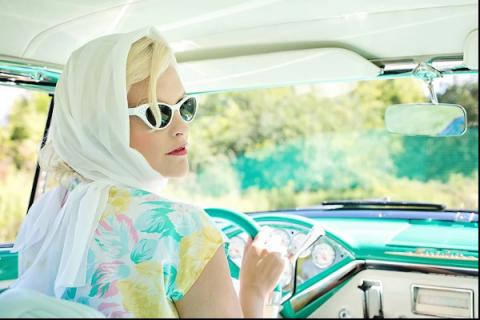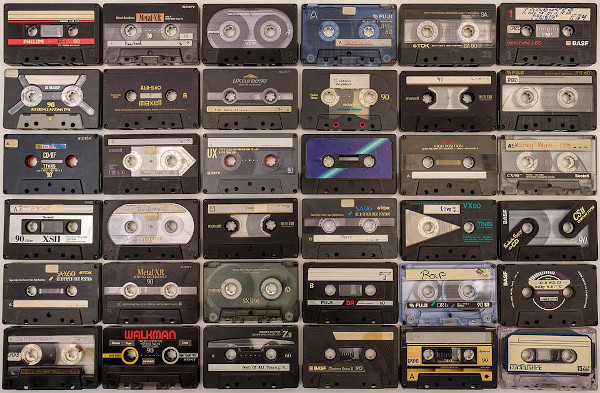The Early Onset Millennial Nostalgia

Hollywood is all in with the reboots and remakes. Refurbished Super Nintendo systems from the earlier 1990s are fetching hundreds of dollars on online marketplaces. And Y2K fashion is a thing again, notwithstanding all the cringy outfits we once plastered all over our Myspace albums. Why now?
There’s been this emergence of Millennial nostalgia consumerism touching on just about every industry out there. We all get nostalgic for our younger years, of course, and anything “retro” has always been cool (yes, I guess we’re calling Tamagotchis and low-rise jeans retro now!). But it seems like we’re banking on this Millennial nostalgia quite early -- the oldest Millennials are just about 40-years-old after all. So why are we being sold the nostalgia of the colorful decades of the 80s and 90s already?
The first thing we should perhaps understand is that nostalgia is, apparently, useful. Not long ago, psychologists believed that nostalgia was destructive, an obstacle that prevented individuals from dealing with their present circumstances. This was mid-1980s, a period of time that now, ironically, inspires fierce nostalgia. But more recent research suggests that nostalgia can be beneficial; indeed, perhaps an essential part of our psyche. The feelings of nostalgia tend to focus on relationships, which can help us increase our sense of community and belonging, of social connectedness, and of personal growth and continuity. In doing so, nostalgia can provide us with positive memories intertwined with our lived experiences – both trying and fulfilling. Funnily enough, then, nostalgia can in its own way remind us that we can, indeed, overcome.

When we frame nostalgia this way, rather than simply as a derivative longing for the past, and knowing the psychological benefits of it, then it’s not so surprising that Millennials are the most nostalgic generation ever. Millennial nostalgia is often misinterpreted because of the wrong perception that, as a stereotype attributed to the entire generation, Millennials just refuse to grow up, preferring instead to remain immature and with no responsibilities. Interestingly, studies have shown that nostalgia is more likely to occur during periods of transition like going off to college, or starting a new job, or having a child, for example. As a generation forever caught in a state of change given the utter lack of societal stability, it stands to reason that Millennials have a constant yearning for when things were just simpler.
Yes, of course we all yearn for our youth, for our carefree younger days when we could eat a whole pizza at midnight and trust our robust metabolism would do what it used to do best. So I am not so sure that’s what Millennials are nostalgic about. When asked what defines this generation, the easiest and most recognizable answer is that Gen Y was marked by the universality of the internet and the rise of social media. There is no doubt these are major aspects that shaped a generation that was derisively labeled the Me Me Me Generation, obsessed with social media and selfies and who learned actual code so that we can make our Myspace profiles unique.
But another defining aspect of the Millennial generation is that they came of age in a post 9/11 world. It was a shift so sudden and of such immense impact that I would argue this is one of the most defining aspects of being a Millennial. Transitioning into adolescence or adulthood during the Columbine massacre and right through the two Bush wars; to then becoming the most educated generation ever but having to go into the workforce during the worst economic recession since the Great Depression; to finally becoming a voting majority only to witness the rise of Trumpism; and then to get hit with a years-long pandemic – all that was bound to leave this generation with a bad aftertaste. Evidently, all this turmoil means that Millennials began to feel nostalgic pretty early on, aided by the content overload with which we are constantly bombarded and, really, just the sheer amount of new content there now is.

Millennials are frequently mocked for their uncompromising, and oftentimes possessive, love of the 90s, a love I share as well as all my peers; we are not ashamed of it and it is, I’m afraid, indeed part of our Millennial personality. But more so than just nostalgia for our childhood, maybe it’s also nostalgia for a world that, at least on the surface to our uniformed brains, actually seemed better. That decade saw the emergence of teen pop, Nickelodeon, and Cartoon Network; it gave us parameters to define a heartthrob; it gave birth to the HBO drama that started it all (even if a lot of us were not old enough to watch it then, we still claim it); and we got Will and Grace’s episode “Will Works Out,” a divisive and infamous episode that for me was a personal turning point. But it was also a time before we had to take our shoes off at airports security, when we didn’t have to wear masks to board a public bus, and when we didn’t have to know if we had been redistricted into brand new congressional districts.
To be clear: This is all absolutely through rose-tinted glasses. That’s the point. There is no denying the social progress that has been gained in the past decades (and the work that’s still left to do). Of course, I don’t want to go back to a time when I can’t marry my husband, and there’s a reason why the “Will Works Out” episode was shocking back then and would probably not be given a green light today. Taking our shoes off at the airport is a minor inconvenience at worst; and it’s not the mask-wearing, it’s the fact that we’re still (still!) going through this pandemic.
This is why nostalgia is a powerful force for Millennials, and industries have noticed. Now that they have become active consumers and primary purchasers, with Millennials spending some $1 trillion a year by some estimates, brands have been diligently advertising to and creating content for this generation, some more successfully than others. For once, it turns out that Millennials really don’t like advertising. This may be especially true because targeted advertising has now become so commonplace that the Millennial consumer may not necessarily feel special to be singled out by an algorithm, and so generally speaking, we don’t respond to traditional ads.

As a generation, Millennials have been infamously disinterested in traditional marketing practices. They decisively deride attempts of “relatable” social media content when ads misunderstand what we actually relate to (to whoever needs to hear this: no Kardashian is ever a relatable spokesperson for anything, luxury or otherwise), or the hollow “woke” sassiness of personified brands. When industries have been successful is when they employ nostalgia to attract consumers.
We have seen this strategy explode. Adobe tried to awaken our inner children with Bob Ross teaching us how to sketch on the iPad Pro. Microsoft tried to use nostalgia to revive some love for Internet Explorer—yes, the much maligned web browser—by reminding us that we are all still children of the ‘90s, with slow loading times while surfing the net and everything (they, rather cleverly, turned off the comments section for this ad). Both KFC and McDonald’s brought back live, solid flesh version of their fictional ambassadors, Colonel Sanders and the Hamburglar. Sanders has been generally well-received as played by SNL alumni Darrell Hammond; while people can’t seem to agree if the Hamburglar is a hot hipster burger-thief, or a creepy serial killer in disguise.
At its most basic, nostalgia marketing provides one of the most important elements of advertising: an emotional hook. That’s half the battle already won; then give consumers a way to use and interact with the modern technology and tools we have today while tying it back to the past, and it’s a surefire hit. Pokémon Go is a great example of this. Google (the parent company of Niantic, the developer) took the globe by storm with the interactive game that allowed players to use their smartphones to interact live with the world around them while catching the beloved monsters from their childhoods. All this nostalgia marketing taps into our positive memories of the past to give us that emotional hook that we want to engage with.

And it’s not just marketing, of course. Entire industries are making use of the nostalgia hook to engage with consumers. Television is rebooting shows left and right. Film studios are either making sequels, prequels, live remakes of movies from yesteryear, or also rebooting oldies. To some extent other than just for the sake of nostalgia, there may be other reasons why they are doing this. Reboots of Saved by the Bell and The Fresh Prince of Bel Air (now simply titled “Bel Air”), both beloved sitcoms that defined the ‘90s, now attempt to portray a more accurate world that Millennials—and Gen Z—gravitate to: with more racially and sexually diverse characters that deal with real-world problems, whether humorously or dramatically (I suppose Gossip Girl has also attempted this, though I’m not sure about the “real-world” problems). Sex and the City made an effort of this as well, to mixed success.
In film, studios are entirely remaking movies from the ‘80s and ‘90s. Let’s not forget that they really tried to remake The Mummy, and Mighty Morphing Power Rangers—and yes, I definitely watched them. Or they are reimagining and adapting beloved mainstays, like the remake of Ghostbusters with an all-female leading cast. The Matrix brought us a new sequel with Neo himself in a very meta take of the original trilogy. And we even got our own version of Little Women (though perhaps every generation deserves their own Little Women; it truly is timeless). And no list of remakes would be complete without the mention of the never-ending adaptions and spin-offs of Disney properties, from the live remake of every Disney renaissance animated film to prequels and sequels expanding the worlds of Star Wars and the Marvel super folks. And yet, we will continue to watch. I know I definitely will. I know what they’re doing, but of course I wanted to see Hermione sing the opening sequel of The Beauty and the Beast. And I absolutely cannot wait to hear Melissa McCarthy do Poor Unfortunate Souls.

Will these remakes continue to feel like repackaged nostalgia? Almost certainly, and that’s the point. They’re meant to be consumed as nostalgia, and because that works so well with the current base of Millennial consumers, they will be successful. The Y2K bug is still going strong now, and there’s no end point in sight, because of the sheer amount of content that is now being produced and repurposed and that will, eventually but inevitably, be remade for a nostalgic audience.
I’m not sure that this is necessarily a bad thing, though. Does it stifle creativity when we just recycle the same old content over and over again? Perhaps. But until we are able to say that we are no longer living with the omnipresent existential dread that has shaped this generation—which is unlikely given the state of everything and the impending collapse of society from climate change and late-stage capitalism—I, for one, will likely continue to consume content that banks on my nostalgia. Whatever it takes to give us that emotional hook, put on rose-colored glasses, and pretend even if just for a little while.
Author Bio:
Angelo Franco is the chief features writer at Highbrow Magazine.
For Highbrow Magazine
Image Sources:
--Victoria Art (Pixabay, Creative Commons)
--Jill Wellington (Pixabay, Creative Commons)
--Bru-no (Pixabay, Creative Commons)
--Stock Snap (Pixabay, Creative Commons)
--Sydollaasign (Wikimedia, Creative Commons)































































































































































































































































































































